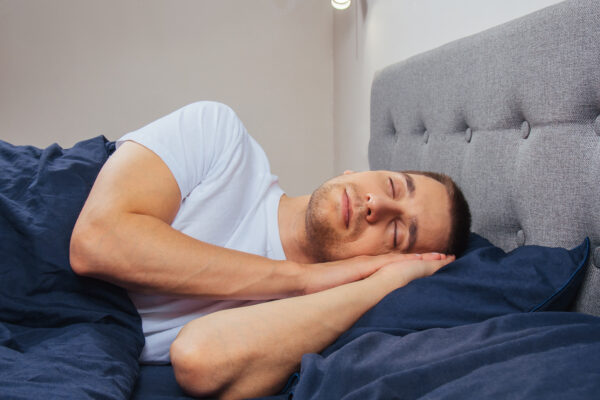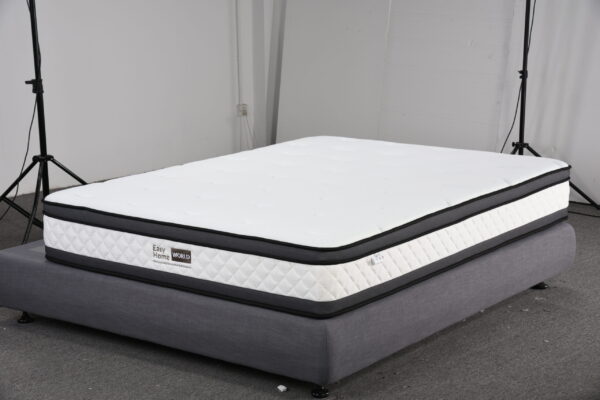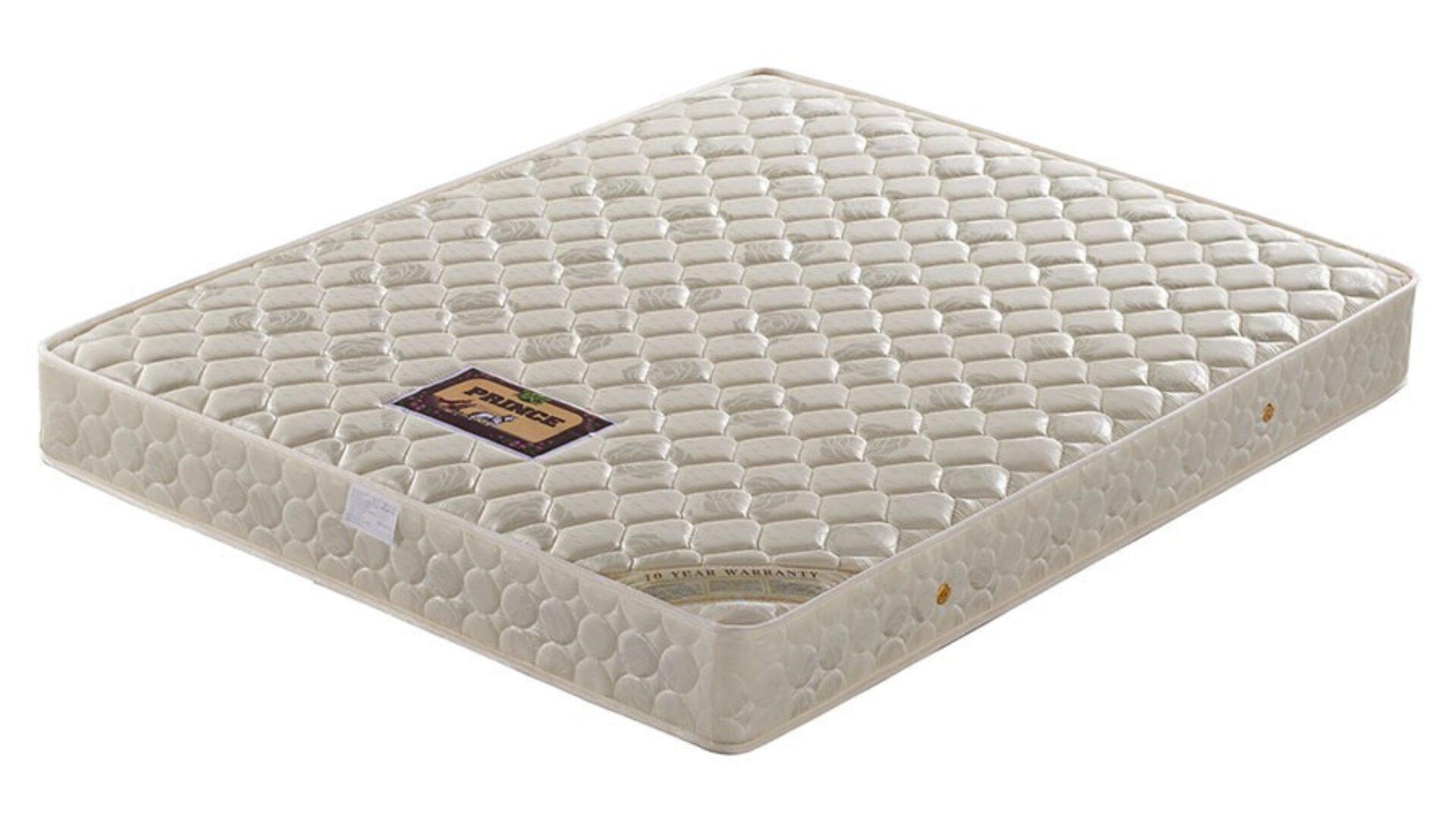Top 10 Signs Your Mattress Is Causing Your Back Pain
Are you waking up with back pain that just won’t go away? Your mattress might be the culprit! A good mattress is crucial for a restful night’s sleep and a healthy back. In this guide, we’ll explore the top 10 signs that your mattress could be causing your back pain.
Imagine this: you wake up feeling tired and achy, even though you slept for hours. As the day goes on, your back pain eases up, only to return the next morning. Sound familiar? Your mattress might be worn out or not providing the support your back needs.

We’ll look at signs like visible sagging, discomfort in specific areas, and even feeling better when sleeping elsewhere. By the end, you’ll have a clearer picture of whether your mattress is to blame for your back pain. So, let’s explore these signs to determine if your mattress is causing more harm than good!
What Are the Signs to Tell Your Mattress Is Causing Your Back Pain
Your mattress plays a big role in how your back feels. If you’re experiencing back pain, your mattress might be to blame. Let’s look at some signs that could indicate your mattress is causing your back pain.
Sign 1: You Wake Up with Stiffness and Soreness
One of the first signs that your mattress may be causing your back pain is waking up with stiffness and soreness. A poor mattress fails to provide proper support to your body, leading to misalignment of the spine during sleep. This misalignment can result in muscle tension and stiffness upon waking up.
To alleviate this symptom, consider investing in a mattress that offers better support for your back. Look for a medium-firm mattress that contours to your body’s natural curves while providing enough support to keep your spine aligned. Additionally, incorporating stretching exercises into your morning routine can help relieve stiffness and soreness.
Sign 2: You Experience Pain While Sleeping
If you find yourself experiencing pain while sleeping, it could be a clear indication that your mattress is not suitable for your body. A mattress that is too firm or too soft can cause pressure points, leading to discomfort and pain during sleep.

To reduce pain while sleeping, consider trying out different sleeping positions and adjusting your pillow height to find a more comfortable alignment for your spine. Additionally, investing in a mattress with pressure-relieving features such as memory foam or latex can help alleviate pain by distributing your body weight more evenly.
Sign 3 : Your Mattress Is Over 8 Years Old
An old mattress can be a significant contributor to back pain. Over time, mattresses lose their ability to provide adequate support and cushioning, leading to increased pressure on your back. If your mattress is over 8 years old, it may be time to consider replacing it.
To determine if it’s time for a new mattress, pay attention to any noticeable sagging or indentations. These signs indicate that the mattress is no longer able to provide the necessary support for your back. Investing in a new mattress can help alleviate back pain and improve the quality of your sleep.
Sign 4: You Notice Sagging or Indentations on Your Mattress
Sagging or indentations on your mattress can be a clear sign that it is time for a replacement. When a mattress sags, it fails to provide proper support to your body, causing your spine to curve unnaturally during sleep. This can lead to back pain and discomfort.
To address this issue, consider rotating your mattress regularly to distribute the wear more evenly. However, if the sagging or indentations are significant, it is best to invest in a new mattress that offers better support and durability.
Sign 5 : Your Mattress Is Too Soft or Too Firm
The firmness level of your mattress plays a crucial role in determining its impact on your back pain. A mattress that is too soft may not provide enough support, causing your body to sink in and leading to misalignment of the spine. On the other hand, a mattress that is too firm can create pressure points and cause discomfort.
To find the right level of firmness for your body, consider your personal preferences and any specific back issues you may have. Generally, a medium-firm mattress is recommended as it provides a balance between support and comfort. However, it is essential to try out different mattresses and consult with professionals to find the best fit for you.
Also Read: Top 10 Ways to Improve Your Sleep in 2024
Sign 6: You Experience Numbness or Tingling in Your Limbs
Numbness or tingling in your limbs during sleep can be a result of poor circulation caused by a mattress that does not adequately support your body. When pressure points are created due to an unsupportive mattress, blood flow can be restricted, leading to these uncomfortable sensations.
To reduce numbness or tingling, consider investing in a mattress that promotes proper blood circulation. Look for mattresses with pressure-relieving features and materials that allow for better airflow. Additionally, adjusting your sleeping position or using pillows to elevate your limbs can help alleviate these symptoms.
Sign 7: You Toss and Turn Throughout the Night
If you find yourself tossing and turning throughout the night, it may be a sign that your mattress is not providing the necessary comfort and support for a restful sleep. A mattress that fails to distribute your body weight evenly can cause discomfort and disrupt your sleep.
To improve sleep quality, choose a mattress that minimizes motion transfer and provides adequate support for your body. Memory foam mattresses are known for their ability to isolate motion, allowing you and your partner to move without disturbing each other’s sleep. Additionally, incorporating relaxation techniques before bed can help promote better sleep.
Sign 8: You Wake Up Feeling Tired and Fatigued
A poor mattress can significantly impact the quality of your sleep, leaving you feeling tired and fatigued even after a full night’s rest. When your body does not receive the proper support and comfort it needs during sleep, it can lead to restless nights and frequent awakenings.
To improve sleep quality and reduce fatigue, invest in a mattress that promotes healthy sleep patterns. Look for mattresses that provide adequate support for your back while offering comfort for a restful sleep. Additionally, establishing a consistent bedtime routine and creating a sleep-friendly environment can contribute to better sleep quality.
Sign 9: Your Partner’s Movements Disturb Your Sleep
For couples sharing a bed, the impact of a mattress on sleep quality becomes even more crucial. If you find that your partner’s movements disturb your sleep, it may be a sign that your mattress is not effectively isolating motion.
To minimize partner disturbance, consider investing in a mattress with motion isolation properties. Memory foam mattresses or hybrid mattresses with individually wrapped coils can help absorb and minimize the transfer of motion, allowing you and your partner to enjoy uninterrupted sleep.
Sign 10: Your Back Pain Improves When You Sleep Elsewhere
If you notice that your back pain improves when you sleep elsewhere, such as in a hotel or at a friend’s house, it may be an indication that your mattress is the culprit behind your discomfort. Sleeping on a different mattress can reveal issues with your current mattress, such as lack of support or improper alignment.
To address these issues, consider replacing your mattress with one that provides better support and comfort for your back. It is essential to choose a mattress that suits your specific needs and preferences to ensure a pain-free and restful sleep.
How to Choose the Right Mattress for Your Back Pain
Choosing the right mattress for your back pain requires careful consideration of various factors. Firstly, determine the level of support and firmness that works best for your body. Consider any specific back issues you may have and consult with professionals if needed. Additionally, take into account the materials used in the mattress. Memory foam mattresses are known for their ability to contour to the body’s shape and provide pressure relief. Latex mattresses offer natural resilience and durability. Innerspring mattresses provide excellent support and breathability.

Lastly, consider factors such as budget, warranty, and trial periods offered by manufacturers. Investing in a high-quality mattress is crucial for long-term back health, so take the time to research and choose wisely.
Also Read: How to Choose the Right Mattress for a Good Night’s Sleep?
Tips for Maintaining Your Mattress to Prevent Back Pain
Regular maintenance of your mattress is essential to prevent back pain and ensure its longevity. Here are some tips to keep your mattress in good condition:
1. Rotate your mattress regularly to distribute wear evenly.
2. Use a mattress protector to prevent stains, spills, and dust mites.
3. Keep your mattress clean by vacuuming it regularly.
4. Avoid jumping or standing on your mattress, as it can cause damage.
5. Follow the manufacturer’s guidelines for cleaning and care.
By following these maintenance tips, you can extend the lifespan of your mattress and reduce the risk of back pain caused by a deteriorating sleep surface.
Conclusion
In conclusion, understanding the link between mattresses and back pain is crucial for maintaining a healthy spine and getting a good night’s sleep. The top 10 signs that your mattress may be causing your back pain include waking up with stiffness and soreness, experiencing pain while sleeping, having an old mattress, noticing sagging or indentations, having a mattress that is too soft or too firm, experiencing numbness or tingling in your limbs, tossing and turning throughout the night, waking up feeling tired and fatigued, being disturbed by your partner’s movements, and finding that your back pain improves when you sleep elsewhere.
To address these issues, it is important to choose the right mattress that provides adequate support and comfort for your body. Consider factors such as firmness level, materials used, and motion isolation properties. Additionally, regular maintenance of your mattress is essential to prevent back pain and ensure its longevity. By paying attention to these signs and taking proactive steps to address them, you can significantly reduce back pain and improve the quality of your sleep. Remember, investing in a high-quality mattress is an investment in your overall health and well-being.
If you’re tired of waking up with back pain, it might be time to invest in a new mattress. Easy Home Furniture offers a wide selection of high-quality mattresses that can help you get the restful night’s sleep you deserve. Visit our website today to find the perfect mattress for your needs!
FAQs
1. How do I tell if my mattress is causing back pain?
Look for signs like sagging, discomfort, or waking up with pain that improves throughout the day.
2. How do you get rid of back pain from a mattress?
Try adjusting your sleeping position, using pillows for support, or investing in a new mattress.
3. Does a good mattress improve back pain?
Yes, a supportive mattress can help alleviate back pain.
4. How do I know if my mattress is bad?
If it’s over 7-10 years old, sags visibly, or feels uncomfortable and unsupportive, it may be bad for your back.
5. What is the best type of mattress for back pain?
Memory foam, latex, or hybrid mattresses are often recommended for back pain.
6. Is memory foam bad for your back?
No, memory foam can actually be beneficial for back pain as it molds to your body’s shape, providing support and relieving pressure points.
7. Is it better to sleep on a hard or soft mattress?
It depends on your preference, but a medium-firm mattress is often recommended for back pain as it provides a balance of support and comfort.
8. What type of mattress to avoid for back pain?
Avoid mattresses that are too soft or lack support, as they can exacerbate back pain.
9. Which type of mattress is best?
The best mattress type depends on your individual needs and preferences, but memory foam, latex, and hybrid mattresses are popular choices for back pain.
10. Can too soft mattresses cause back pain?
Yes, mattresses that are too soft can cause your spine to be out of alignment, leading to back pain.


Leave A Comment
You must be logged in to post a comment.